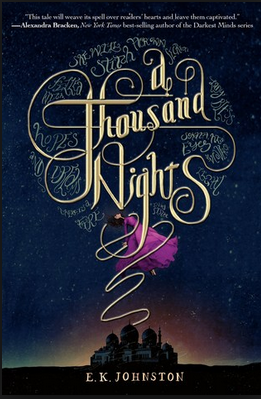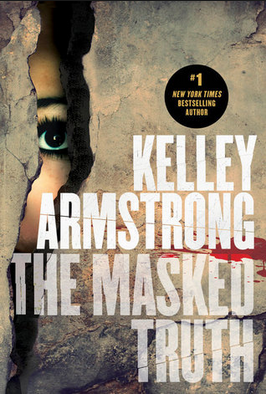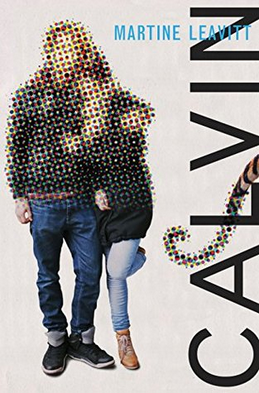In praise of…
Hello, friends. I’ve been reading for a Top Secret Project (I’ll tell you more about it in a few months) and it has been both a revelation and a delight. This week and next, I thought I’d share some of the books I’ve most enjoyed so far. These aren’t reviews, in the traditional sense, but I wholeheartedly recommend all these books.

You may remember how much I love and admire E K Johnston’s first two novels, The Story of Owen, and its sequel, Prairie Fire: epics of modest Canadian heroism packed with sly wit and heartbreak. A Thousand Nights couldn’t be more different – it’s a re-imagining of The Arabian Nights – yet it crackles with what I’m learning to recognize as Johnston’s utter confidence as a storyteller. The setting is vivid and detailed, the unnamed narrator courageous and insightful. While the dénouement feels somewhat compressed, the novel continually circles around ideas of storytelling and power in a way that I find hypnotic.

I have always admired Kelley Armstrong’s gift for grabbing you by the neck and dragging you deep into a story. That’s a violent metaphor but an apt one for Armstrong: I always feel a little bruised and unsettled by her imagination, and The Masked Truth is the most terrifying book of hers I’ve yet read. (If you’re sensitive to horror fiction, don’t read it before bed. I made that mistake.) Yet The Masked Truth is much more than a slick, pacy story about a hostage situation gone badly wrong. Both its protagonists suffer mentally: Riley from PTSD and Max from schizophrenia. Max’s illness, in particular, is handled with sensitivity while multiplying the horror of the premise. And while the dénouement seems a bit improbable, the resolution a little too smooth and tidy, I am so grateful for a happy ending. I really believe in Riley and Max and would have been heartbroken by too much harsh realism after all they suffer.

I read Martine Leavitt’s Calvin soon after The Masked Truth without realizing that both feature protagonists who suffer from schizophrenia. It’s an instructive contrast because the novels are so different, yet both follow brilliant young men dealing with diagnoses of schizophrenia while falling in love with fiercely intelligent young women. Calvin is built, rather elaborately, around the protagonist’s overidentification with Bill Watterson’s Calvin and Hobbes comics. I usually mistrust extended conceits but this one worked for me. The heart of the book – the parts that I adore – were the conversations between Calvin and Susie (see? There’s that conceit popping up again). They’re plausibly teenaged-metaphysical, yet far more beautiful and insightful and uncompromising than I ever managed to be as a young person. (Maybe the reason I admire this book so much is that I wish I’d read it as a teenager. Then again, it might have been dangerous to set my lifetime standards for meaningful conversation so dizzyingly high.) The ending – today is apparently my day to complain about endings that don’t quite match the very high standard of the beginning and middle – is slightly disappointing in its rosy tidiness. Still, it’s an extremely fine novel and I was deeply excited and awed by Leavitt’s craft.
*Aside: are there any books about a brilliant girl who’s diagnosed with mental illness? It’s probably just the cumulative effect of reading two novels about brilliant schizophrenic boys/girls who love them and dispense patient life wisdom, but I’d be interested in seeing someone undercut that gendered nurturing dynamic. It’s disconcerting to have both Riley and Susie – otherwise feminists and independent thinkers – conclude, “I love him and he needs me so.”
Have you read anything particularly fine lately? Do tell, if you have!
 newest »
newest »




Isabella says: "it's not so secret anymore, is it?"
:-)
Mental illness girl - i haven't read it yet, but maybe "Girl Interrupted"? "Gone Girl" is a little too perverse.